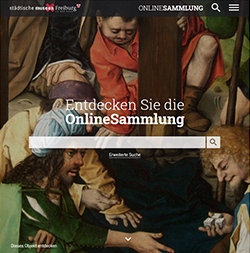Insights into the History of the Collection
Prof. Dr. August Gruber
8.10.1853 – 23.3.1938
August Gruber came from Genoa in Italy. He grew up in a prevailing intercultural environment there and saw himself as a citizen of the world.
Gruber studied in Freiburg and received his doctorate in 1878 in Leipzig for his thesis on freshwater crayfish. After returning to Freiburg, he became an assistant to his brother-in-law Prof. August Weismann at the Institute of Zoology at the University of Freiburg. He completed his post-doctoral thesis (habilitation) in 1880, became a privatdozent and, in 1883, was appointed as reader. In 1906 Gruber became a senior civil servant (Hofrat) and member of the privy council in in 1913.
He was culturally and socially engaged and was active in various associations and commissions: his many offices included a post as a city councillor (1890–1911), membership of the Naturforschenden Gesellschaft (Nature Research Society) and of the Commission für die Gründung eines Städtischen Museums für Natur- und Völkerkunde (Commission for the Foundation of a Municipal Museum of Natural History and Ethnology). Gruber was also a member of the German Fleet Association and the Anthropologische Gesellschaft (Anthropological Society) and the Deutscher Kolonialverein (German Colonial Society). However, his membership of neither of the last two societies appears in his memoirs. After Hugo Ficke's death in 1912, Gruber became honorary director of the museum.
Gruber Donation
Gruber left various natural and ethnological collections to the museum between 1899 and 1912. In 1902 he bought a fossil Ichthyosaur (Ichthyosaurus quadriscissus) in Holzmaden for 200 Marks. Today it is displayed in the entrance to the museum. His donations included invertebrate freshwater organisms, the development of the trout in a series of fourteen specimens, cecidia, a wasp's nest, a kestrel and the head of a seagull choking on a fish.
Gruber's largest ethnological donation comprised 200 Japanese tsuba (sword mountings) he bought in 1903 from the merchant Tadamasa Hayashi in Paris. He was thanked twice in the press for these exceptional donations, combined with the appeal for others to follow suit. In 1967, 177 of the Japanese sword mountings were exchanged for a leather shirt of the North American Crow (III/1944).





